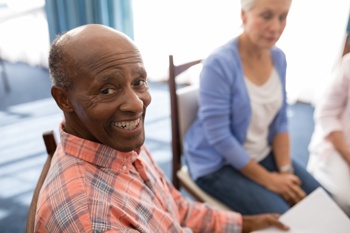
What is Safeguarding?
In the UK, safeguarding refers to the measures designed to protect the health, well-being and human rights of individuals. It aims to prevent abuse, harm and neglect which allows vulnerable groups to live safely. The Care Act 2014 defines safeguarding as protecting an adult’s right to live in safety, free from abuse and neglect. It emphasises collaboration between individuals and services to mitigate risks and enhance well-being. Equality and diversity are always considered to ensure the individual’s views, wishes, feelings and beliefs are met.
Key Principles of Safeguarding
The Care Act 2014 outlines six key principles that guide safeguarding practices in health and social care:
- Empowerment – Supporting and encouraging people to make their own decisions with informed consent.
- Prevention – Acting before harm occurs to avert potential risks.
- Proportionality – Responding appropriately to the level of risk.
- Protection – Offering support and representation to those in greatest need.
- Partnership – Collaborating with local communities to find solutions and involve them in safeguarding efforts.
- Accountability – Ensuring transparency and responsibility in safeguarding practices.
It’s important to note that Wales and Northern Ireland have their own safeguarding legislation and best practices, such as the Social Services and Well-Being (Wales) Act 2014 and the Safeguarding Vulnerable Groups (Northern Ireland) Order 2007.

Safeguarding Dementia
Now you understand the elements and legislation surrounding safeguarding, it’s important to understand the importance of safeguarding dementia patients. Dementia safeguarding is crucial as individuals with dementia are particularly vulnerable due to cognitive impairments, which include:
- Memory loss – Difficulty remembering important and personal information.
- Concentration issues – Problems with focusing, planning and organising.
- Communication difficulties – Challenges in expressing needs or understanding others.
- Disorientation – Confusion surrounding time, place and identity.
These symptoms make people with dementia more susceptible to abuse or neglect, as they may struggle to protect themselves or communicate their needs effectively. To improve the lives of individuals living with dementia in your care, we have these useful guides on caring for dementia and dementia training.
Carer Vulnerability
It’s important to remember that those who care for people with dementia can also be at risk, especially if they experience stress, isolation or heavy caregiving burdens. Overburdened carers may neglect their own needs, which can impact the quality of care they provide. Safeguarding interventions can lead to carer assessments, which help to identify the necessary support required to improve both the carer’s and the patient’s well-being.
Dementia Safeguarding Scheme
The Dementia Safeguarding Scheme in the UK is designed to protect people living with dementia from abuse, harm and neglect. It provides a structured approach to ensuring their safety and well-being through structured policies and collaborative efforts between caregivers, healthcare professionals and local authorities. The scheme emphasises early identification of risks, personalised care plans and regular assessments to adapt to the evolving needs of those with dementia.
Complementing this scheme is the Safeguarding Vulnerable Groups Act 2006, which creates a framework for vetting individuals who work with vulnerable groups, including people with dementia. The act mandates the creation of the Disclosure and Barring Service (DBS), which is responsible for maintaining lists of individuals barred from working with vulnerable populations. It ensures that only those who have passed rigorous background checks and assessments are permitted to work with these groups.
When used together, these legislations play a crucial role in safeguarding adults with dementia and other at-risk groups in the UK.

Recognising and Reporting Abuse
What is abuse? Abuse involves causing harm or distress to another person, whether an adult or child. It can manifest in various forms, from disrespect to physical or mental harm. Abuse can occur in different settings including homes, care services, hospitals or public spaces. Abusers often exploit special relationships, such as those with family members, friends or paid carers. In some cases, abuse is unintentional and arises from a lack of necessary skills, knowledge or support.
Indicators of Abuse
Detecting abuse can be a challenge, especially when it comes to people living with dementia as they are prone to paranoia and can become confused and disorientated at times. This can lead to them believing things that aren’t true, known as ‘false belief’ or ‘delusions.’ However, this doesn’t take away the importance of noticing common signs of abuse, which can include:
- Sudden changes in behaviour
- Unexplained bruises or injuries
- Poor nutrition or not eating enough (weight loss or changes)
- Low self-esteem
- Changes in appearance
- Missing personal items
If you notice any of these signs or are concerned about someone’s treatment, it’s crucial to report the incident immediately. This is commonly known as whistleblowing and is very important. Safeguarding measures can provide the necessary support to protect those at risk, you should get familiar with your services’ policies and procedures. To ensure safety, you can:
- Discuss safety concerns with management
- Contact the police if there’s immediate danger
- Report issues to your local authority’s safeguarding team
- Engage with local communities and networks for additional support.
If you are concerned about someone at risk, your first point of contact should be the Local Authority Safeguarding team. However, local authority response is not always the only solution. Other agencies, such as the police, domestic abuse services, the National Referral Mechanism for victims of modern slavery, community support groups and social services teams can also assist.
Local authorities have a duty to promote individual well-being, prevent or delay care needs and assess individuals if there are safeguarding concerns. They must act, even if the person does not want an assessment. This helps to ensure comprehensive support in complex situations.

Get Your Policies and Procedures Organised
In conclusion, safeguarding dementia patients requires vigilance, empathy and collaboration. It involves recognizing the unique vulnerability of people with dementia and ensuring their protection through appropriate measures and support systems. Having the right policies and procedures in place will keep vulnerable adults in your care safe from people who might pose a risk and will provide information on what to do if there is a concern for this person’s safety or well-being.
For detailed and customisable policies and procedures, we at The Access Group provide extensive resources and guidelines to help care services and carers implement effective safeguarding practices. Our commitment to promoting well-being and preventing abuse is crucial in creating a safe and supportive environment for all individuals, particularly those affected by dementia.
Our policies and procedures contain expertly crafted guidelines to ensure safeguarding practices are consistently effective and up-to-date with the most current legislation. Our policies facilitate better communication and collaboration among caregivers, enhance the quality of care and promote a safe and supportive environment.
To start your journey of building strong relationships, trust and confidence among service users and their loved ones while improving the quality of your dementia safeguarding, please get in touch with one of our friendly experts today for more information. Or sign up here to gain access to our policies and procedures software demo.

 AU & NZ
AU & NZ
 SG
SG
 MY
MY
 US
US
 IE
IE
